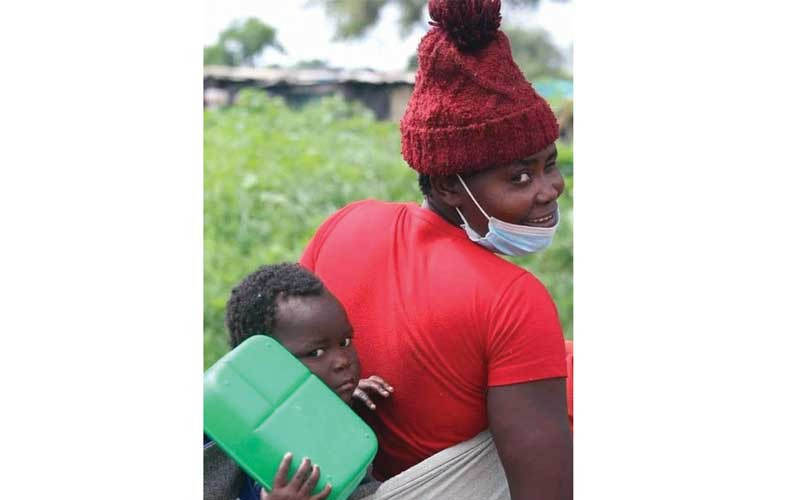
To begin with, it is important to understand what odious debt is. Odious debt is when a country’s government borrows money from foreign lenders for purposes that are not in the best interests of the people, or for purposes that do not benefit the country as a whole.
This can happen for a variety of reasons, but in the case of Zimbabwe, it can be linked to corruption and mismanagement of public funds by the government. However, this has a great impact on women, children and people with disabilities.
For example, in the context of Zimbabwe, if the government were to borrow money from China, and the citizens have no information on how much was borrowed, how it was meant to be spent and how it would be repaid, this would mean that there would be greater chances of the debt being odious as it can be used anyhow without benefiting the citizens.
It’s important to note that marginalised groups in Zimbabwe are often the most vulnerable to economic hardship. When a country has a large amount of odious debt, it can lead to a number of problems.
To be more specific, let’s take a look at some of the specific groups that are affected by odious debt. The most vulnerable groups include women, children and people with disabilities. These groups are already marginalised, and the additional burden of odious debt makes their lives even more difficult. They may have trouble accessing basic services, such as healthcare and education, and they may be forced to take on dangerous and low-paying jobs in order to survive.
As a result of excess debt, the government may have to divert resources from social programmes and public services that benefit these groups.
Women are often responsible for the care of their families, and they have to travel long distances to fetch water and firewood. They also have to take care of their crops and livestock if they live in the rural areas. The debt burden makes it difficult for them to afford basic necessities, such as food and medicine. In addition, they may have to take on multiple jobs in order to make ends meet.
Resultantly, this means that they end up being away from their families for long periods of time, and they have less time to take care of their own health and well-being.
- The brains behind Matavire’s immortalisation
- Red Cross work remembered
- All set for inaugural job fair
- Community trailblazers: Dr Guramatunhu: A hard-driving achiever yearning for better Zim
Keep Reading
The other effect of odious debt is that the country may be forced to adopt austerity measures that disproportionately affect marginalised groups. This can be evidenced by the introduction of more taxes on goods and services that are used on a daily basis.
In 2018, the Ministry of Finance introduced the intermediated money transfer tax (IMTT) which was pegged at 2% of every transaction made. While this was meant to last only for a year, the tax continued in existence at the detriment of the poor citizens who had to use mobile money platforms for transactions.
The debt burden can lead to a weakening of the currency, which makes it harder for people to afford basic goods and services. Those that will be available often are charged exorbitantly which will force most people to start borrowing among themselves and end up in debt distress at household level. This borrowing may be necessary as the money will be needed to cater for the basic needs which would have been provided for by the government.
People with disabilities in Zimbabwe also face a number of challenges, that include lack of access to basic services, discrimination, and exclusion from the workforce. The debt burden has made it even more difficult for them to access the services they need.
For example, many people with disabilities do not have access to adequate healthcare and they lack access to economic opportunities which makes it difficult for them to earn a living.
This has led to a cycle of poverty that is very difficult to break. Many people with disabilities are living in extreme poverty and are often excluded from the formal economy.
On October 19, 2023, at a Fight Inequality event in Bulawayo, people with disabilities confessed to how they are systematically excluded from job sectors, including the mining sector. Unfortunately, they went on to point out the obvious fact that they are equally taxed.
Further to the raised concerns, high odious debt levels also increase the unemployment rate for these groups. The rate of unemployment for women and people with disabilities is often much higher than the national average.
According to Zimbabwean statistics, women make up 52% of the population, and yet, according to the multidimensional poverty statics of Zimbabwe, they are considerably the poorest.
Women are as a result confined to unpaid work or to the informal sector which does not offer them any protection or security. Alas, they still bear the odious debt burden.
Few potential solutions to the issue of odious debt and its impact on marginalised groups:
Improve the transparency and accountability of the Zimbabwean government. This would help to ensure that debt is only used for legitimate purposes that benefit the country as a whole;
Create more economic opportunities for marginalised groups, such as through micro-finance programmes and vocational training. In addition, more investment in infrastructure, such as roads and electricity, could help to improve the lives of rural women and people with disabilities;
Increased advocacy to raise citizens awareness on these issues and to have coalitions that push for transparency and accountability in terms of debt contraction. There can also be a push for clear debt repayment strategies after debt audits to determine which is odious and which is legitimate debt;
Focus on empowering local communities and grassroots organisations. This could include capacity building and training to help them advocate for their own interests; and
Leverage technology to create transparency and accountability mechanisms that are more difficult to manipulate.
Awareness and advocacy are crucial in order to bring about change of the issues and educating citizens about the impact of corruption and illicit financial flows (IFFs) is an important first step.
Corruption and IFFs are major problems in Zimbabwe, and they have a huge impact on the economy, making it difficult to implement any kind of solution, including those that have been mentioned. While this article has focused sorely on Zimbabwe, it is important to note that these problems are not unique to Zimbabwe. Many countries in Africa and around the world face similar issues
Coalitions of civil society groups and other stakeholders can work together to push for transparency and accountability. Zimbabwe has seen the Zimbabwe Coalition on Debt and Development (Zimcodd) mobilise towards transparency, accountability and debt audits, while Transparency International Zimbabwe also had initiatives around the safeguarding of whistleblowers. These initiatives were able to yield a few outcomes, but the level of awareness on the issues of debt that affect the citizens was exposed to a great extent
Other innovative ideas on solving the issues of the contraction of odious debt, corruption and IFFs are needed. And Zimbabweans should be encouraged to be actively involved in the demand for transparency and accountability.
- Millin is a social and economic justice analyst. These weekly New Horizon articles, published in the Zimbabwe Independent, are co-ordinated by Lovemore Kadenge, an independent consultant, managing consultant of Zawale Consultants (Pvt) Ltd, past president of the Zimbabwe Economics Society and past president of the Chartered Governance & Accountancy Institute in Zimbabwe (CGI Zimbabwe). — [email protected] or +263 772 382 852.







